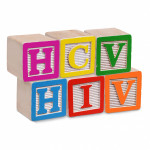Postponing hepatitis C virus (HCV) treatment until liver damage has progressed could increase the risk of liver-related sickness and death among those coinfected with HIV. Publishing their findings in the Journal of Hepatology, researchers created a model based on the Swiss Cohort HIV Study, a prospective cohort study of HIV-positive people in Switzerland.
There are five stages of liver fibrosis, F0 to F4, on the so-called METAVIR scale. F0 means no fibrosis, F1 to F3 indicate increasing degrees of fibrosis, and F4 is synonymous with cirrhosis.
The researchers estimated that 2 percent of those who began hep C treatment during F0 or F1 would die of liver-related complications. This rate increased to 3 percent if hep C treatment began during F2, 7 percent if it began during F3 and 22 percent if it began during F4.
The median estimated time that individuals spent with replicating hep C increased from five years if treatment began at F2 to almost 15 years if delayed to F4.
To read the study abstract, click here.







Comments
Comments